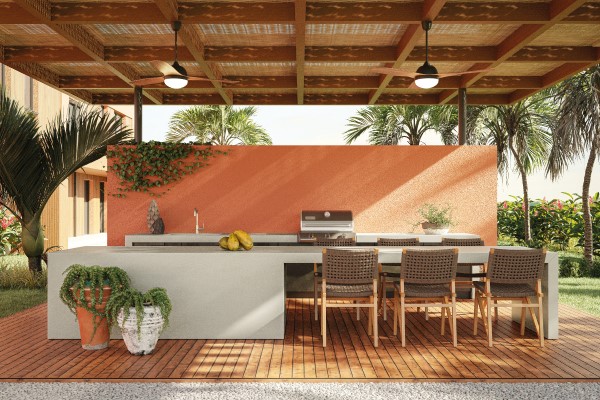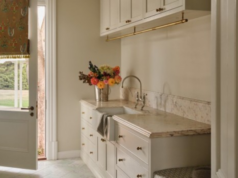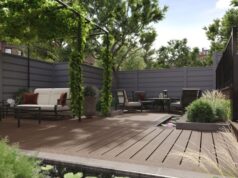
Cocktail bars, lounge spaces and even workspaces are set to claim a spot in what was the Australian outdoor kitchen, as designers cleverly recreate the space to take on a new level of luxury and sophistication – as well as versatility.
And while the focus is undoubtedly on aesthetics, there is equal attention on the materiality of these spaces – sustainable materials that offer true longevity; natural materials that provide texture and tonal interest.
Stone, timber and porcelain are all part of the mix, with the latter being a relative newcomer to the scene. Caesarstone introduced its Porcelain collection in 2022 and since then has seen a surge in its use in outdoor areas, including kitchens and entertaining areas.
The brand believes there are two key factors in the popularity of its porcelain product for garden rooms. It’s a natural, sustainable product and its resistance to UV rays means it will retain its original beauty for a lifetime (it carries a lifetime warranty).
Another distinct quality of Porcelain is its ability to emulate practically any other surface, from marble and granite to limestone and concrete. Caesarstone currently offers 22 designs, in a mix of finishes from Silk and Stone to Honed and Ultra Rough, and two thicknesses – 12mm and 20mm (not all designs are available in all finishes and thicknesses).
Other features putting Porcelain ahead of other surfaces for the outdoor space are its extreme heat and stain resistance, hot cooking utensils can be placed directly on the surface, while any spills, including chilli sauces and red wine, will not leave permanent stains.
Caesarstone’s sustainability credentials include the fact that each slab of Porcelain is crafted from natural raw ingredients, including clay, feldspar and oxides, while its production process adheres to the brand’s ‘green waste’ reuse process, whereby up to 20% of its contents are the waste from the first stage of production and 100% of all water is recycled.





